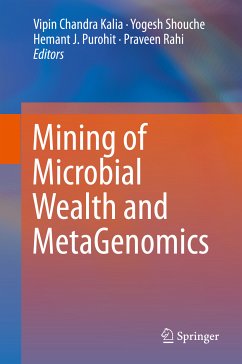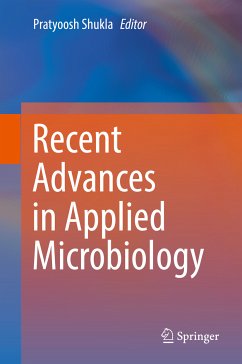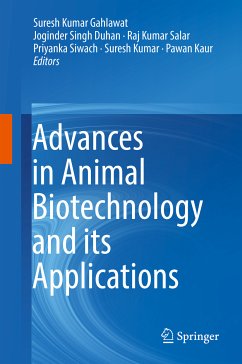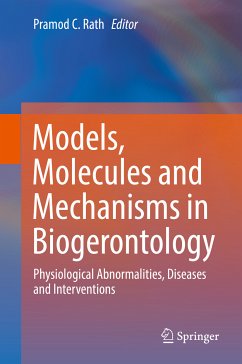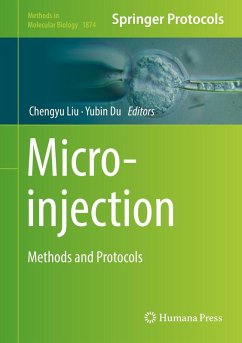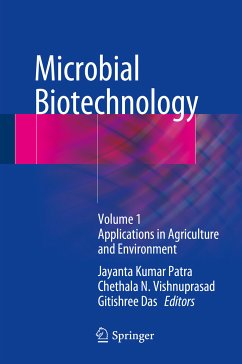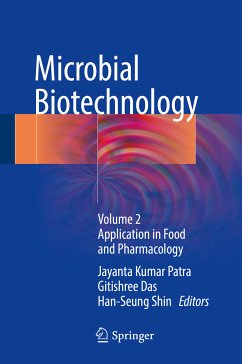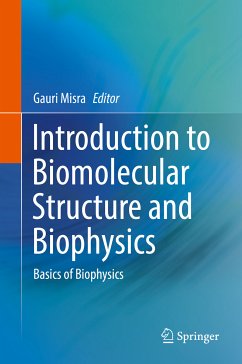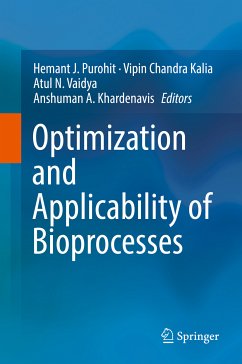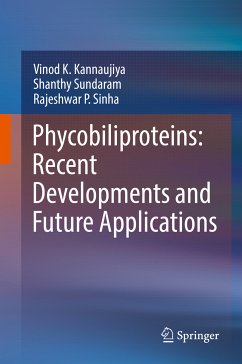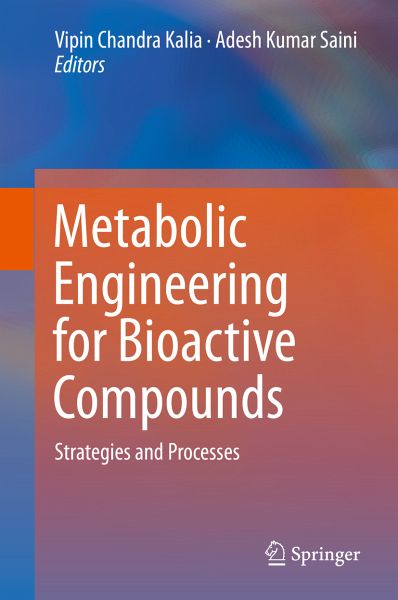
Metabolic Engineering for Bioactive Compounds (eBook, PDF)
Strategies and Processes
Redaktion: Kalia, Vipin Chandra; Saini, Adesh Kumar
Versandkostenfrei!
Sofort per Download lieferbar
112,95 €
inkl. MwSt.
Weitere Ausgaben:

PAYBACK Punkte
56 °P sammeln!
This book comprehensively discusses the latest research in the area of metabolic engineering. Metabolic engineering solutions for bioactive compounds are now being derived by means of heterologous gene expression, in a wide range of organisms. The book provides an overview of the model systems being employed for metabolic manipulation to yield bioactive molecules, such as single-cell proteins, antibody generation, metabolites, proteases, chaperones, therapeutic proteins, nanomaterials, polymeric conjugates, dendrimers and nanoassemblies, Escherichia coli, Agrobacterium, Saccharomyces cerevisia...
This book comprehensively discusses the latest research in the area of metabolic engineering. Metabolic engineering solutions for bioactive compounds are now being derived by means of heterologous gene expression, in a wide range of organisms. The book provides an overview of the model systems being employed for metabolic manipulation to yield bioactive molecules, such as single-cell proteins, antibody generation, metabolites, proteases, chaperones, therapeutic proteins, nanomaterials, polymeric conjugates, dendrimers and nanoassemblies, Escherichia coli, Agrobacterium, Saccharomyces cerevisiae and cell lines, etc. In addition, it shares insights into the scope of these methods in the areas of prevention, diagnosis and treatment of diseases, e.g. immunotherapy for curing various diseases like cancer, allergies, autoimmune diseases, etc.
Dieser Download kann aus rechtlichen Gründen nur mit Rechnungsadresse in A, B, BG, CY, CZ, D, DK, EW, E, FIN, F, GR, HR, H, IRL, I, LT, L, LR, M, NL, PL, P, R, S, SLO, SK ausgeliefert werden.



